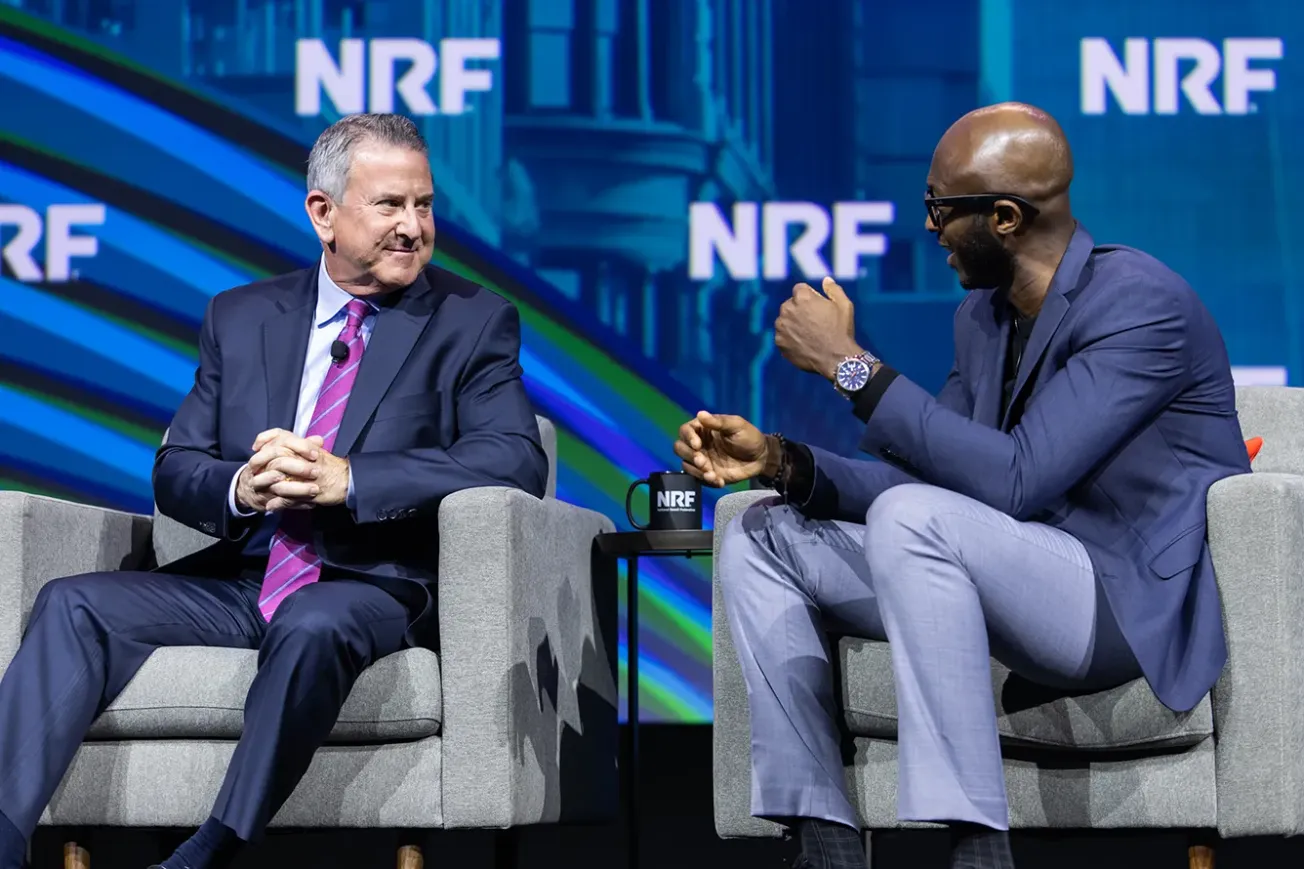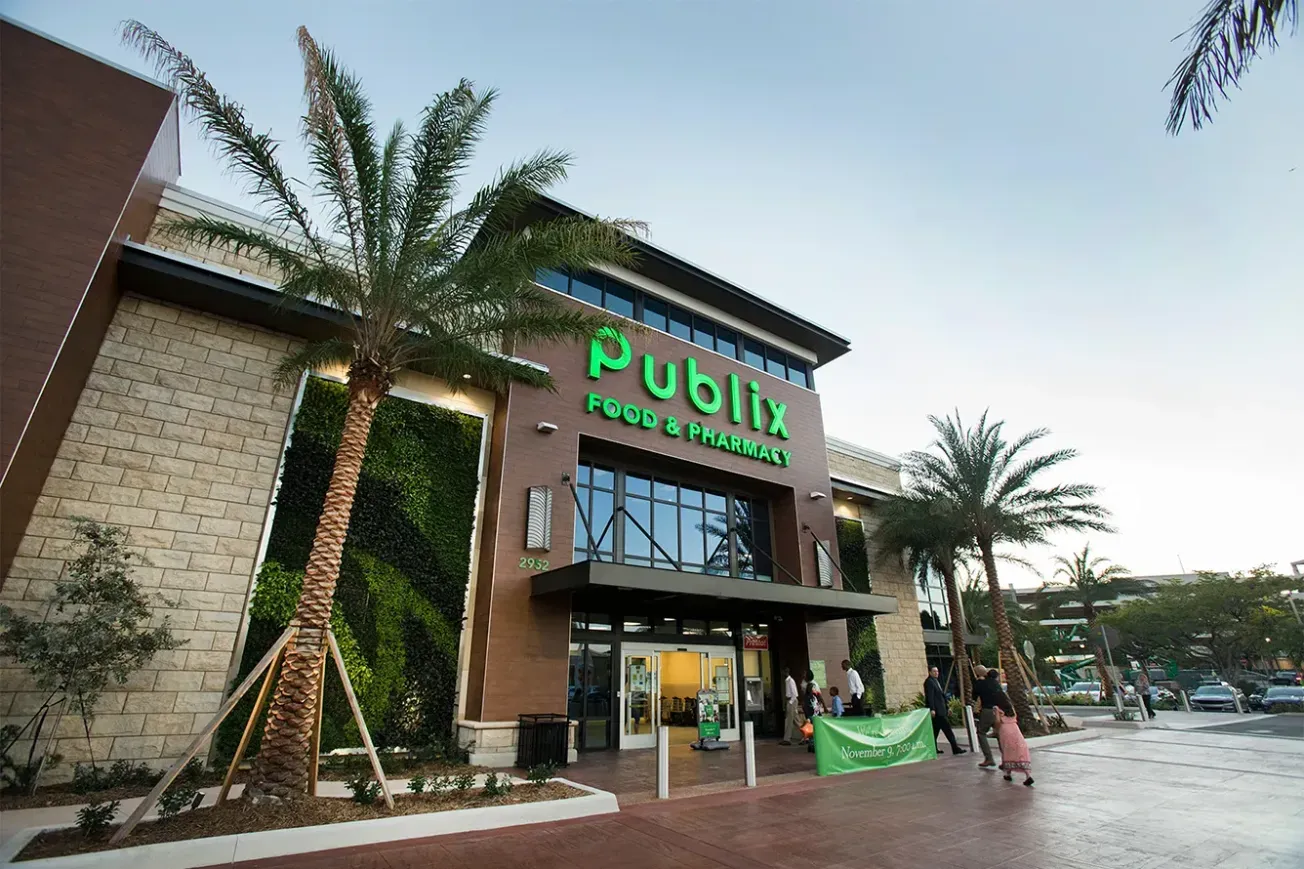NEW YORK—The National Retail Federation's "Big Show" has become a showcase for Generative AI applications and other advanced technology. But Target CEO Brian Cornell argues that people and workplace culture are as critical as ever.
“Culture is a competitive advantage,” Cornell emphasized, describing Target’s philosophy as a “culture of care, growth, and winning together.” This culture prioritizes caring for team members, customers, and communities while fostering professional development and collaboration opportunities, he said.
Cornell spoke at NRF '25: Retail's Big Show in a session titled "Game Changing: Culture's Influence on Navigating Volatility and Long-Term Growth." He was joined by Great Place To Work CEO Michael Bush and Target group vice president Abubakarr Bangura.
This culture has been transformative for Bangura, who began his career as a Target intern in 2004 and now oversees 77 stores across five states with annual sales revenue of about $3.8 billion. “The reason I’ve stayed all these years is because of our culture,” he said. Bangura credited Target’s openness to feedback and its mentorship-driven environment for fostering his career growth. He also described a Target program called Prepare for Next, which provides employees with the training they need to move up at the company.
Providing that pipeline for talent is vital if Target is to meet its ambitious growth plans, Cornell said. "We're going to be building hundreds of additional stores over the next 10 years. We want to make sure we're developing the next generation of store directors."
Cornell highlighted the scale of Target’s growth under his leadership, including the the opening of more than 250 new stores and the tripling of its digital business. And that success has been driven by people, he argued. “That wasn't a byproduct of a presentation or a PowerPoint slide," Cornell said. "It came down to great people. And I think that investment in talent and connecting that to culture is just so important.”
Describing the retail sector as "incredibly competitive, very dynamic, ever-changing," Cornell emphasized that investing in people is a shared priority among retailers. "One of my favorite parts of what we do is when you meet a team member who might've started out as an hourly team member and 10 years later is a store director with 200 or 400 people that report to them," Cornell said. He credited Target's "culture of care, growth, and winning together" as key to creating an environment where employees can thrive and advance into leadership roles."
Bush, whose organization ranks and certifies companies as "great places to work," said that Target lives up to those ideals.
"Target happens to be number three on our best workplaces in retail list," Bush said. "If you take organizations with more than a hundred thousand employees, Target is number one."
Bush also noted that working people in 174 countries and across all industries fear that the rollout of AI ultimately will cost them their jobs.
Cornell also addressed those fears, saying that worries about the growing role of retail technology and its potential impact on retail workers have been a constant throughout the 10 years he has attended NRF's "Big Show" conference as CEO of Target. He believes that technology will be a positive force.
"As we think about Gen AI and the impact it's going to have on retail, we've got to make sure people realize it's going to drive growth, and it's going to create new jobs and new opportunities," he said.
Striking the right balance between technology and the human element will require leaders to spend time and build trust with their teams, have honest conversations, and explain the "whys" behind some of the new technologies being deployed. Technology will play an ever-growing role, Cornell said, but the human element will continue to play a critical role, too. "It's going to be the combination that's going to fuel growth. It's not an either-or."








